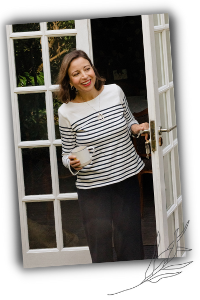One of the saddest stories I read in the press recently was about a much respected trainee doctor who died in a car crash after fighting to stay awake. He was so exhausted after working three long night shifts that he fell asleep at the wheel and hit a lorry.
Now, I’ve never worked in a hospital, nor had to work a single night shift in my life. I cannot for one minute imagine what sort of mental and physical strain that would put a person under. But I have known what it’s like to be driving a car and be struggling to stay awake.
Back when my two eldest children were aged three and one, I worked in an impossibly stressful environment. At the time, my one-year-old son would wake up regularly every couple of hours at night. It was a toxic combination that left me as a PR account director who was underweight, cracking at the seams and forever trying and failing to get on top of the job.
I can still remember the regular sprint out of the office, battling yet again with the rush hour traffic, knowing that, yet again, I’d arrive after closing time to find, with a sinking heart, my two gorgeous little boys bundled up in their coats and waiting expectedly with a lone, grim-faced carer outside the locked doors of the nursery. And I remember one day reaching the motorway and realising with mounting horror that my eyes were closing. After frantic window-opening and turning the radio to full blare, I engaged every shred of concentration I could muster to drive the remainder of the journey. The memory makes my stomach turn. I simply shouldn’t have been behind the wheel.
Once I’d ditched the job and began my years of freelancing from home, the night time became my friend as I caught up on the work that I couldn’t get to during the day. You know those boxes of chocolates where you finish one layer and you’re gutted there’s no more pralines and then, hurrah, you pull out a whole new fresh tier? Well, that’s how I was with nocturnal working. If I couldn’t get every last bit of work completed during the day then… ta-dah! I could whip out a whole new source of time to get through more work: the night! Sticking two fingers up at my natural body clock, I used the blissfully uninterrupted quiet of the night to bang out page after page of copy, reports and correspondence.
Now that I’m a health coach, I see that cavalier attitude to sleep reflected every day in women who are chronically overstretched. They view the night as a child-free opportunity to get on with cooking, cleaning, ironing, polishing, form-filling etc etc. But forfeiting sleep exacts a heavy cost. If we’re honest with ourselves, we know the price we pay the next day: from a frighteningly short fuse and cravings for junk to hormones in freefall and ravaged cognitive skills that sabotage our work. And the long-term effects? Weight gain, depression, a heightened risk of diabetes, heart disease, cancer, Alzheimer’s.
It’s a subject that’s on my mind a lot this week as I’m reading The Sleep Revolution by one of my favourite role models, Arianna Huffington. I read Arianna’s last book, Thrive, a couple of years back and it imprinted on me a life-transforming lesson: count back eight hours from when I need to get up and go to bed at that time. So simple…and yet such a departure from the manic, artificially hyper life we’ve come to lead in 2016. Never-enough-hours-in-the-day, got-to-have-the-house-perfect-before-I-go-to-bed, i-pad-on-the-pillow, let-me-just-catch-up-on-Twitter/Facebook/anything, just-one-more-episode-from-the-box-set….
Sound familiar? Then make a switch that will save your health, your mind, your sanity. Join the Sleep Revolution and watch your life transform.
Sweet dreams.
Try these tips to improve your sleep:
- Make sure your room is completely dark, free of clutter and cool (around 18 degrees).
- Try to choose a wake-up time you can stick to within an hour every day of the week to support your body’s natural rhythms.
- An hour before going to bed, switch off all electronic devices, including the TV. If you do have to look at a screen, wear special amber glasses designed to block out blue light (you can buy these online).
- Don’t have a TV in your bedroom and keep your iPhone/iPad out of your bedroom (if you’re telling yourself you need your phone to wake you up, invest in an alarm clock!).
- Consider taking a magnesium supplement, a powerful relaxation mineral, before going to bed.
- Have a hot bath and add magnesium-rich Epson Salts and a few drops of lavender oil.
- Finish dinner at least two hours before you intend to go to bed.
- Leave a three-hour gap between exercising and lights out.
- Try a ten-minute meditation or breathing practice to signal to your body it’s time to rest.
- Avoid caffeine in the afternoon/evening.


 If you'd like to get more quick and easy tips delivered straight into your inbox, sign up to my Peppermint Post newsletter.
If you'd like to get more quick and easy tips delivered straight into your inbox, sign up to my Peppermint Post newsletter.
0 Comments